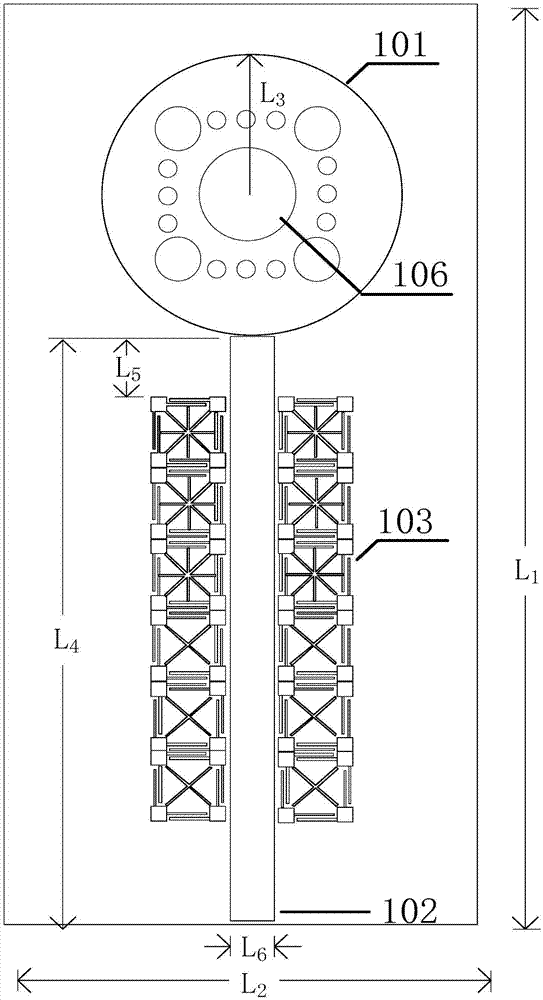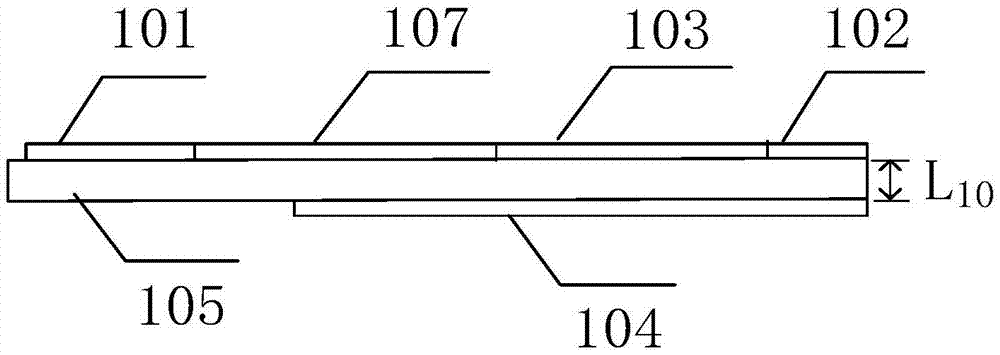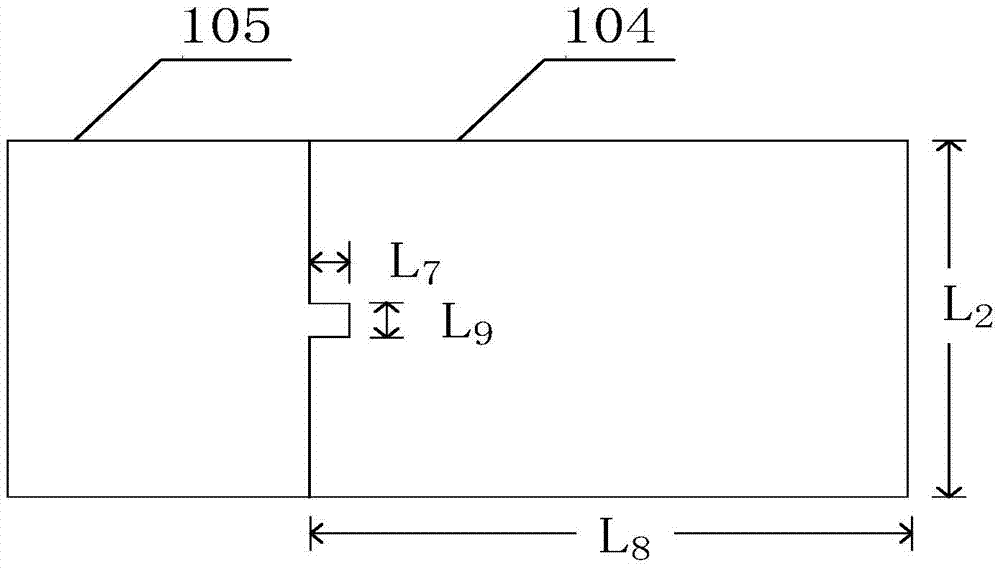Stop band steep dual-notch ultra wide band (UWB) antenna
A double-notch and stop-band technology is applied to antennas, antenna coupling, and devices that enable antennas to work in different bands at the same time. It can solve problems such as unfavorable system integration, difficulty in adjusting the center frequency of stop bands, and large antenna volume. The effect of low cost, compact structure and convenient processing
- Summary
- Abstract
- Description
- Claims
- Application Information
AI Technical Summary
Problems solved by technology
Method used
Image
Examples
Embodiment Construction
[0023] The invention designs a double-notch UWB antenna with steep stop bands, and the filter can avoid mutual interference with a WLAN system.
[0024] Below in conjunction with accompanying drawing, invention is described in more detail:
[0025] Such as figure 1 As shown, a double-notch UWB antenna with a steep stop band of the present invention, the radiation unit (101) on the dielectric substrate, the impedance matching input microstrip line (102), the circular etched fractal structure (106), and the rice character The cross-type EBG electromagnetic bandgap structure (107), the cross-type EBG electromagnetic bandgap structure (103), adopts copper material.
[0026] An example of the present invention is figure 2 As shown, the dielectric substrate (105) is a GML1000 material with a dielectric constant of 3.2. The dielectric substrate has a thickness of 0.762mm.
[0027] The metal grounding plate (104) under the dielectric substrate is made of copper material.
[0028...
PUM
 Login to View More
Login to View More Abstract
Description
Claims
Application Information
 Login to View More
Login to View More - R&D
- Intellectual Property
- Life Sciences
- Materials
- Tech Scout
- Unparalleled Data Quality
- Higher Quality Content
- 60% Fewer Hallucinations
Browse by: Latest US Patents, China's latest patents, Technical Efficacy Thesaurus, Application Domain, Technology Topic, Popular Technical Reports.
© 2025 PatSnap. All rights reserved.Legal|Privacy policy|Modern Slavery Act Transparency Statement|Sitemap|About US| Contact US: help@patsnap.com



